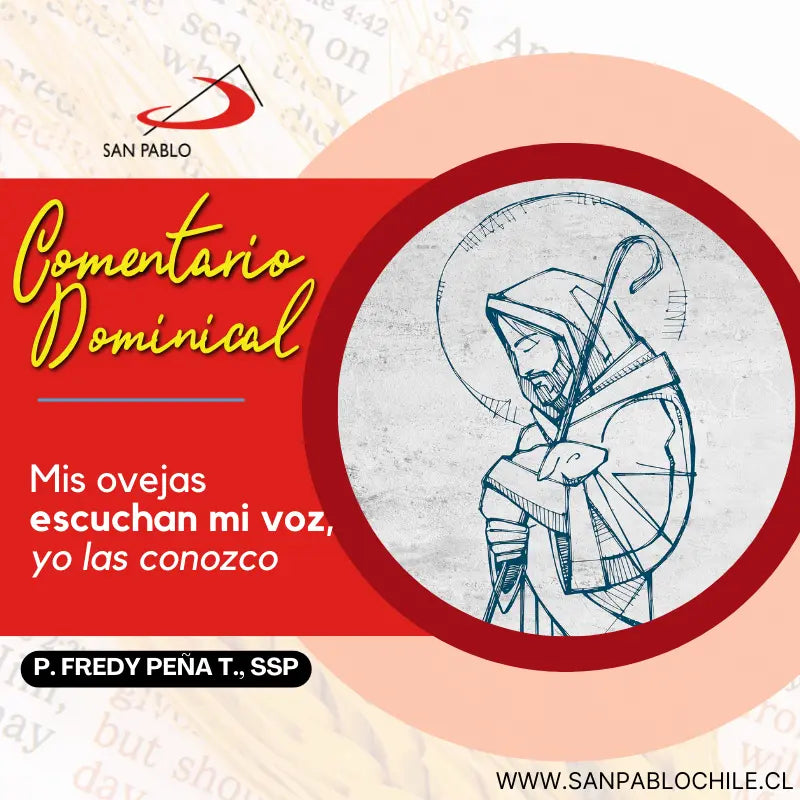Fredy Peña T., ssp
Jesus is the Good Shepherd who, as the text says, gives his life for his sheep. The evangelist, in the midst of a festive context, the Feast of Lights or the Feast of the Dedication, presents us with Jesus' confrontation with his fellow countrymen. Curiously, those who reject him do not belong to his flock; instead, those who welcome him are his sheep. The latter always identified with the figure of the shepherd, as it was their way of expressing how lovingly protected they felt by God.
However, what can everyone who feels connected to the Good Shepherd experience? First, that he gives them eternal life, that is, the life that endures in hope, love, and gratitude; second, that they will not perish forever, because Jesus' promise of eternal life is ratified by his resurrection. Therefore, Jesus is not a false or pretentious shepherd, like the ancient leaders or kings of Israel, who presented themselves as guarantors of God's law but failed to fulfill it. Nor is he a mercenary who is always measuring how much he will lose with the next misdeed, especially when the sheep become a commodity for his own benefit. He is the model shepherd who helps people emerge from their fears and from the exploitation of the yokes of power.
For Jesus's adversaries, it was impossible to conceive of relating to God by calling him "Father," much less by his works showing his union with him. It's a shame they remained focused on doctrines or formulas and not on what is truly important: if Jesus' works don't reveal who he is, then what must happen to confirm that he is the "Son of God." Jesus' love, as the Good Shepherd, challenges our faith, and that's why he calls his sheep one by one. Because only good and faithful sheep will be good and holy shepherds tomorrow, like those of today.
“I give them eternal life; they shall never perish, and no one shall snatch them out of my hand” (Jn 10:28).

